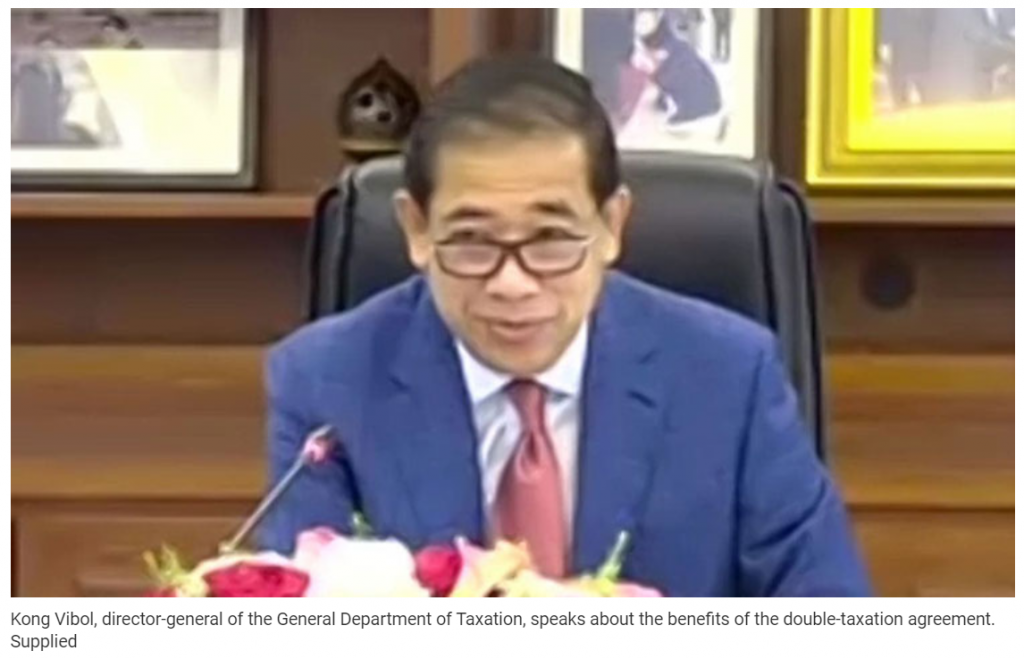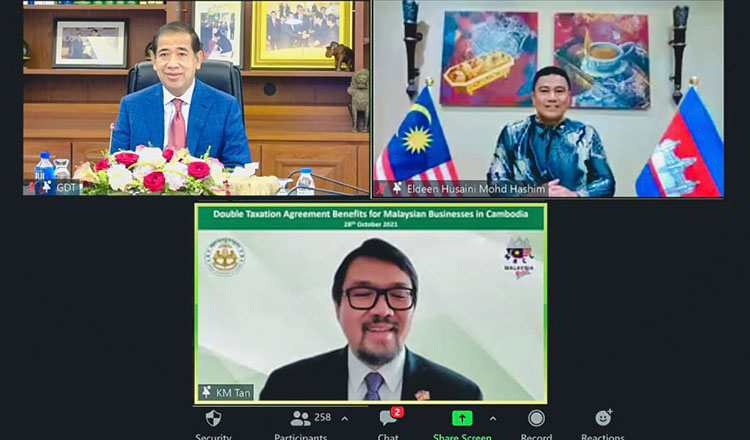Malaysia ambassador: Tax deal ‘will bolster investment’
This year’s double-taxation agreement (DTA) between Malaysia and Cambodia will result in more investment into the Kingdom and more Cambodians sourcing goods and services in Malaysia, according to the country’s ambassador to Cambodia.
“This will help to make Cambodia more attractive to Malaysian businessmen and thus promote more FDI [foreign direct investment] from Malaysia to Cambodia,” said Ambassador Eldeen Husaini Mohd Hashim.
“The DTA will definitely eliminate double taxation and provide greater tax incentives for all businessmen. It will make clear the tax environment of Malaysia and Cambodia on all forms of income arising from all economic activities between the two countries. Malaysian businessmen and investors looking for investment opportunities in Cambodia will benefit from the agreement. Similarly, Cambodian businessmen using Malaysia as a source for products and technology will also benefit from this agreement. I am totally confident this agreement will promote greater flow of trade, investment and expertise between the two countries,” he said.
Bilateral trade fell by 40 percent in value year-on-year in 2020, with Malaysia’s exports to Cambodia down 42 percent and its imports from the Kingdom falling 31 percent. So far this year total trade has risen by more than 15 percent, the ambassador said.

Last year Malaysia was the third-largest investor in Cambodia, behind China and South Korea, at $3.53 billion with more than 140 registered projects. The ambassador said if the Council for the Development of Cambodia registers the Naga 3 project, investment this year will be even higher, making Malaysia the second biggest investor in the Kingdom. The project would be an addition to NagaCorp’s casino ventures in Phnom Penh.
Ambassador Eldeen Husaini Mohd Hashim’s comments came during a tax seminar organised by the Malaysian Business Chamber of Cambodia (MBCC), which counts more than 100 companies among its members.
MBCC President KM Tan said members are committed to improving the business environment in the Kingdom.
“Malaysian businesses in Cambodia are well diversified,” Tan said. “Banking – and I’m proud to say we have seven commercial banks owned by Malaysians – telecommunications, energy, insurance, hospitality, real estate, construction, manufacturing, professional services, media et cetera. Besides the monetary investment Malaysian companies have been contributing in human resources and capacity-building, which have trained thousands of local employees,” he said.
The meeting also heard from Kong Vibol, who is director-general of the General Department of Taxation. He said Cambodia was slow to ink DTAs, being the last of the 10 ASEAN members to sign one. He said now the GDT has moved all its services online it is easier for the government to collect taxes from foreign businesses and easier for the companies to pay tax. Cambodia signed its first DTA with Singapore and now has 10.
“I hear the voice from investors that they want to see the DTA because they see the benefits: You pay only one tax. Besides, I want investors in Cambodia to pay tax in Cambodia to contribute to develop our country,” Vibol said. “Since we signed with 10 countries revenue keeps rising. It’s okay to lose some but we gain a lot of jobs, opportunities and the benefit of investors.”
Vibol said the government wants to receive 25 percent more tax revenue in 2022 than this year and he believes it will be possible. He said the digitalisation of tax records and the online payment system will prevent leakages and give no one the excuse that they cannot submit documents to the tax office or pay from fear of catching the Coronavirus.
Cambodia and Malaysia entered into the DTA on Jan 1. Prior to the signing, dividends, interest, royalties and technical fees paid by a Cambodian company to a Malaysian company were subject to Cambodian withholding taxes at the rate of 14 percent of the gross payment. The DTA cuts withholding taxes to 10 percent. That gives Malaysian businesses a potential tax saving of 29 percent.
Dividends are not taxable in Malaysia. Neither is interest income if the interest was paid on a loan used in Cambodia. Royalties are sometimes tax-free in Malaysia. Technical fees are taxable if the fees are sourced from Malaysia.
Source: https://www.khmertimeskh.com/50961054/malaysia-ambassador-tax-deal-will-bolster-investment/


 Thailand
Thailand




